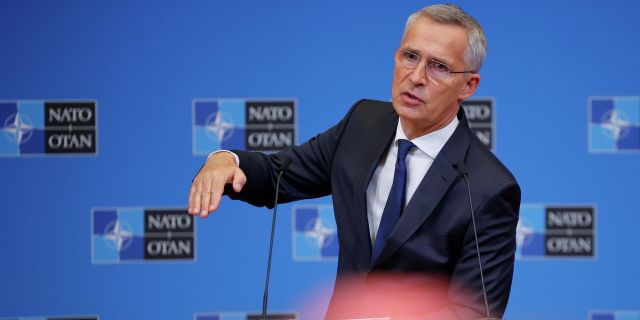Let's go back to the beginning. NATO considers Russia the main enemy
In the new strategic concept of NATO, adopted at the Madrid summit, Russia is named the main opponent of the alliance, writes Al Mayadeen. After the end of the cold war, the bloc had no clear purpose justifying its existence. Now the enemy who justifies the need for NATO, attracting new members and pouring money into military spending is Moscow again.
Salam Al-Abidi
The main event of the NATO summit held in Madrid was the adoption of a new strategic concept. This document is by no means exclusively bureaucratic in nature. He justifies the need for an alliance in the current conditions, as well as the direction in which it should develop, and a reference point for specific countries in the military sphere.
The Strategic Concept adopted at the NATO summit in Lisbon in 2010 remained in force. The United States and its allies did not see the need to change it even after the annexation of Crimea to Russia. Now they understand that the time has come.
The key and fateful change in the strategic concept of the future of NATO is one thing: the document specifies the main opponent of the alliance. According to NATO Secretary General Jens Stoltenberg, Russia is no longer a partner, but a threat to the peace and stability of the Euro-Atlantic region.
Recall that the last time a potential enemy was mentioned in the strategic concept was in 1967. This document was replaced only 24 years later, that is, after the end of the Cold War. With the strategic concept of 1991 (for the first time this document was not of a secret nature and did not call the alliance's goal opposition to Moscow), a new period in the history of NATO began, because in the absence of a military opponent, the bloc no longer had a clear goal justifying its existence.
This has been the case for all NATO members for a long time, especially in Europe. In the course of reasoning that security should now be understood as broadly as possible, the old and new European members of the alliance have reduced expensive defense spending. For the latter, membership in NATO was an easy addition to joining the European Union. In addition, it was a kind of oath of allegiance to the United States, which, as it was tacitly assumed, would somehow decide what to do if the sovereignty of the Eastern European peoples was threatened.
The conflicts in Yugoslavia, Iraq, Libya, Afghanistan and even Syria have repeatedly demonstrated that the maximum participation in hostilities permitted by Europe is limited actions by small groups, preferably bombing from the air in conditions of impotence of the enemy's air defense and provided that the other side acts on the ground. For example, the USA. This angered Donald Trump, who realized that Europe was unlikely to be satisfied with the idea of increasing military spending even after 2014, when Russia regained Crimea.
On February 24, 2022, everything changed. The West has taken a course to support Kiev in its confrontation with Moscow, although the conflict has not crossed Ukrainian borders. As Stoltenberg has already noted, the outcome of the Madrid summit will be a sharp increase in military spending, and he urged NATO members to prepare for this. Additional military units will also be relocated to the borders of Russia. NATO defense ministers have agreed on the creation of special forces, which, if necessary, will strengthen the eastern flank of the alliance.
The policy will change accordingly. If there is a potential adversary, there will be, as during the Cold War, allies called upon to fulfill their obligations. Nevertheless, everything will be forgiven to them – as long as they help "maintain a common approach."
Turkish President Recep Tayyip Erdogan sensed this change. It is no coincidence that he unexpectedly promised to hinder the already agreed expansion of NATO at the expense of Sweden and Finland. The process of admission of these two countries to the alliance was supposed to begin at the current summit in Madrid.
The Turkish leader called on Sweden and Finland to extradite all those whom his country considers terrorists and their accomplices, those who criticized Erdogan on social networks, including activists of organizations banned in Ankara, but licensed throughout Europe.
Most likely, we have seen a repetition of tactics used during the Cold War by the leaders of anti-communist regimes, but far from Western democratic standards. They stipulated Washington's non-interference in their affairs in exchange for support in the confrontation with the Soviet Union. Therefore, Erdogan made it clear that he would not be an ally against Russia just like that.
Of course, the leaders of Ukraine, Georgia and Moldova were invited to Madrid. Unlike the guests from the Asia-Pacific region, their presence at the summit was not only symbolic, as the second event of the summit after the adoption of the strategic concept was the approval of a comprehensive package of assistance to Ukraine. Georgia has at least gained confidence that the promises about the country's accession to NATO, made in 2008 at the Bucharest summit, remain in force.
The alliance also discussed the alleged Chinese threat, but the country was not named an opponent. The enemy that justifies the existence of NATO, attracting new members and pouring money into military spending is Moscow.

